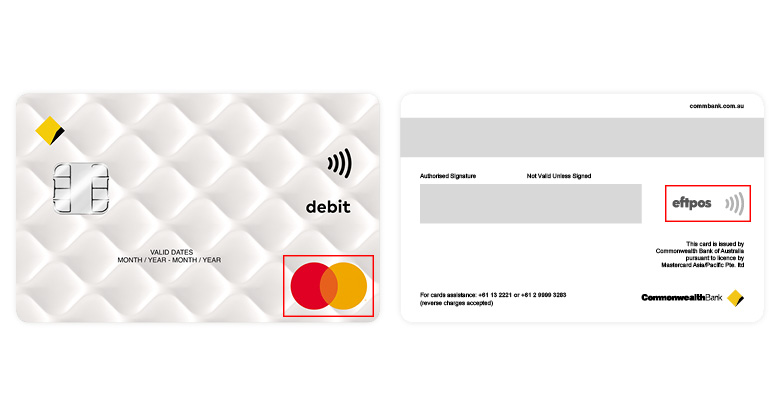Help & support
In Australia, Multi-Network Debit Card (MNDC) transactions are processed through one of three networks: Mastercard, Visa or eftpos. Each network charges different rates per transaction, which are then included in your monthly merchant fees.
By opting into LCR1, you can choose which network (Mastercard/Visa/eftpos) these payments are sent through. This could help you save on costs for your business.2
LCR is an optional feature, giving you the opportunity to save on fees whenever customers make an eligible payment in-person and on selected terminals.
If you opt-in to LCR you'll be asked to select one of three options for processing customers' tap-and-go MNDC transactions. Which one you choose will depend on your individual business and determine your potential savings.2 Before you decide, take the time to look at your transaction volumes, card mix and turnover in your most recent merchant statement to make the most cost-effective choice.
Read our case studies outlining how three businesses might benefit from each of the LCR options.
Luke runs a cafe where he sells a lot of coffee. His average sale size is $5.
As per his pricing schedule, debit transactions processed through the Mastercard or Visa networks incur an average of 1.2% in transaction fees. Debit transactions processed through the eftpos network incur 25c per transaction.
Based on Luke's average sale size of $5, routing customers' MNDC tap-and-go transactions through Mastercard and Visa networks would cost him an average of 6c per transaction. Routing these transactions through eftpos would cost him 25c per transaction. Luke realises it's cheaper for him to enable LCR to route these transactions through the Mastercard and Visa networks.
Current fees: Visa and Mastercard only - average $5 x 1.2% = 6c per transaction
Alternative option fees: 25c per transaction
Sam runs an upscale restaurant where the average meal costs $150. Sam pays an average fee of 2% for each debit payment processed through the Mastercard or Visa networks. She discovers that it would only cost her a flat rate fee of 35c for each payment processed through the eftpos network.
Based on an average sale size of $150, Sam pays $3 in fees if LCR is not enabled. She decides to enable LCR on her terminal and sets the MNDC tap-and-go transactions to be routed through the eftpos network for the 35c flat rate, and by doing so saves an average of $2.65 per sale.
Current fees: Visa and Mastercard only - average $150 x 2% = $3 per transaction
Alternative option fees: 35c per transaction
Sandra runs a gift shop where her average sale size is $25. Sandra pays an average transaction fee of 1.2% for debit payments processed through the Mastercard and Visa networks. Sandra discovers that it would cost her a flat fee of 30c for every debit transaction processed through the eftpos network.
She works out that she’d be best off using LCR and setting a transaction threshold limit of $25. This way, MNDC transactions up to and including the value of $25 will be processed using the Mastercard or Visa networks at a cost of 1.2% per transaction, and debit transactions greater than $25 will be processed using the eftpos network at a cost of 30c per transaction.
With this approach, Sandra will pay a maximum cost of 30c per transaction and for debit transactions less than $25 in value, the fee will always be less than 30c per transaction.
Current fees: $5 x 1.2% = 6c and $25 x 1.2% = 30c and $45 x 1.2% = 54c
Alternative option fees: $5 x 1.2% = 6c and $25 x 1.2% = 30c and $45 will incur the flat fee of 30c
Compare the fees you pay now with the fees you’d pay with the different LCR options to make an informed decision about whether to opt in. We can help with this over the phone and find out what the most cost-effective choice is for your business. Either:
LCR only applies to tap-and-go MNDC transactions. This means that the card must have a Mastercard or Visa logo on one side and the eftpos logo on the other. Most debit cards in Australia are MNDC. Tap-and-go credit card transactions are not covered because they default to their issuer’s network.

LCR isn't applicable to credit card transactions, Mobile Wallet transactions or any transactions being made by inserting or swiping a debit card on the device.
You'll still need to make sure you're only surcharging the amount it costs you to process the payment, known as the Cost of Acceptance.
Chargebacks are applicable if you opt in to LCR.
No, your settlements will not be affected and will take place as usual.
1 Least Cost Routing is also known as Merchant Choice Routing. A reference in the Merchant Agreement dated 1 April 2020 to Merchant Choice Routing is also a reference to Least Cost Routing.
2 We cannot advise you which network will be best for you and we cannot guarantee cost savings. You must understand your pricing associated with Visa, MasterCard and eftpos card transactions and decide what is best for you.
As this information has been prepared without considering your objectives, financial situation or needs, you should, before acting on the information, consider its appropriateness to your circumstances. Please view our Merchant Agreement (232KB PDF), Financial Services Guide (72KB PDF) and Operator and User Guides at our merchant support hub.
Mastercard and the Mastercard brand mark are registered trademarks of Mastercard International Incorporated. Visa is registered Trademark of Visa in the United States. Eftpos is a registered trademark of eftpos Payments Australia Ltd.